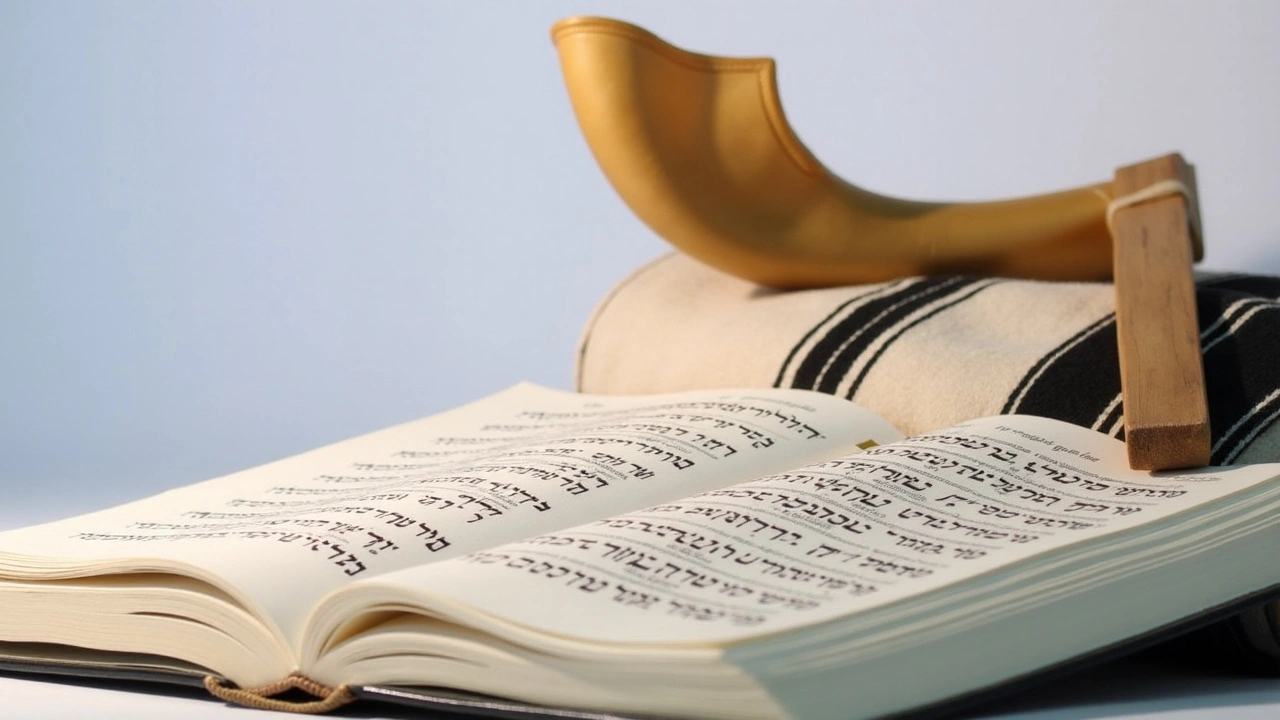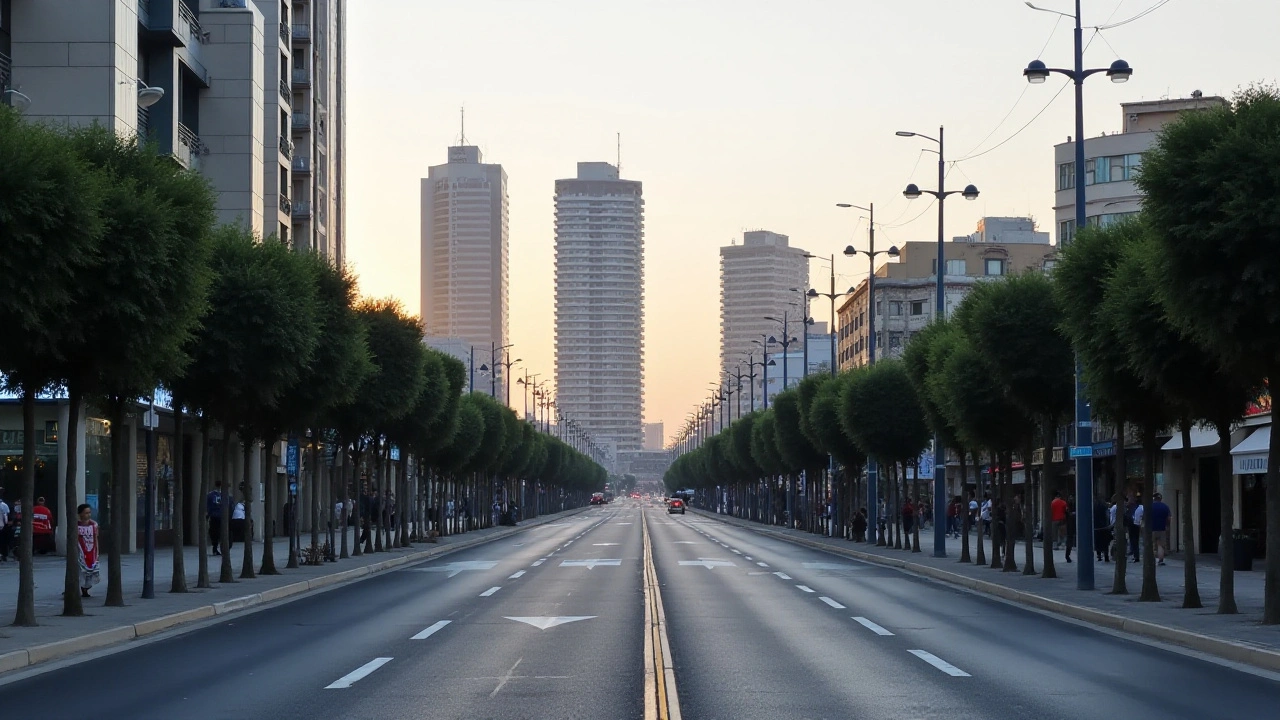Israel on Edge: Yom Kippur Amidst Conflict
In an unusual atmosphere marked by tension and apprehension, Israel observed Yom Kippur this year under the severe condition of a nation at war. Not since the intense conflicts of 1973, has the Jewish state been on such high alert during this deeply sacred holiday. The significance of Yom Kippur, where Jews worldwide reflect, repent, and fast, took an extra dimension against the backdrop of looming threats from its volatile neighbors. The situation brought to light the precarious position Israel finds itself in, caught between maintaining religious traditions and ensuring national security.
The echoes of history seemed to resound as the country engaged in heightened security measures similar to those invoked during the infamous Yom Kippur War, when Israel faced coordinated attacks by Egypt and Syria. Today, the threat landscape has evolved to include tensions with Hamas in Gaza and the volatile Hezbollah presence in Lebanon. This had led to an alert status that saw citizens preparing to balance the sanctity of the day with necessary safety precautions. Alert systems were a common feature across Israeli homes, and instructions were clear: be ready to seek shelter at a moment's notice.
A Nation Alert and Prepared
This year, the Israeli Defense Forces (IDF) fortified their positions and maintained an increased presence, particularly around the West Bank and Northern borders. Anticipation of potential threats required significant troop deployment and readiness to respond at any moment. Soldiers on the frontline were instructed to forgo fasting, a traditional Yom Kippur practice, to maintain optimal alertness and physical readiness. Such measures, while difficult given the holiday's emphasis on spiritual introspection, were deemed necessary under current circumstances.
The situation in Northern Israel remained particularly tense. Recent days saw increased rocket fire originating from Lebanon, a number of which caused infrastructural damage and civilian injuries. The spillover effects of these exchanges also impacted UN peacekeepers stationed in southern Lebanon, with reports of injuries surfacing following Israeli strikes aimed at neutralizing potential threats. This escalation highlighted the ongoing volatility and the tangled web of alliances and enmities characterizing the region.

International Calls for Peace
Globally, there were widespread calls from nations, notably the United States, urging restraint and the establishment of ceasefires between conflicting parties. The international community has long monitored the fragile stability in this region, historically aware of the potential for broader conflict that might arise from heightened tensions. Grasping the complexity of Israel's geographical and political challenges, diplomatic efforts continued in the hopes of securing a long-term resolution.
Amidst such dire circumstances, Yom Kippur served as a poignant reminder of Israel's quest for peace in a region rife with historical grievances. Yet, the reality of living amidst constant geopolitical tensions unearths a prevalent question for Israelis: how to balance faith, tradition, and security. For many, it's a balancing act that becomes tangible every time sirens wail and shelters become a refuge amidst sacred prayers.
The Long Road Ahead
The current state of alert during Yom Kippur underscores the broader challenges facing Israel. Navigating its complex relationships with neighboring nations like Lebanon and Gaza is only one aspect of the broader picture. Domestically, debates continue over the appropriate balance between security measures and the freedoms of civilian life. Even political spheres engage in heated discussions over how best to preserve the nation’s democratic ideals amidst the constant specter of external threats.
For ordinary civilians, this period of high tension imposed an additional layer of gravity to an already solemn day. In synagogue services and reflective prayers, many found solace even amidst uncertainty. It became a moment for collective reassessment of purpose as a nation and individuals. In an era defined by rapid change and unpredictability, the steadfast traditions of Yom Kippur provided a rare moment of continuity.
A Testimony to Resilience
As the sun set and stars appeared, signaling the end of Yom Kippur, a kind of collective exhalation was felt across the country. Many hoped that, like the fasting and prayers offered, the lessons of the past might guide their future. While tensions from regional conflicts remain an ongoing concern, Israel's resilience was once again put to the test. This year's high alert Yom Kippur stands testimony to that resilience—a day observed not just in reverence but in remembrance of the price of peace, the value of vigilance, and the enduring power of faith.


Heather Stoelting
The Yom Kippur fast shows the heart of Israel even in danger. Citizens find strength in prayers while sirens echo. The IDF presence adds a layer of protection that many appreciate. Families gather in synagogues and feel united. The balance of faith and security is a tough act. Yet the resilience of the people shines bright. Every shelter door opened reminded them of solidarity. The nation’s history of surviving wars fuels confidence today. Leaders coordinate alerts without breaking the solemn mood. The holy day becomes a reminder that peace is worth the effort. Even when rockets fly, the community stays hopeful. Volunteers help neighbors check on each other. The spirit of forgiveness extends to a desire for calm. This dual focus on devotion and vigilance sets a powerful example. Israel shows the world that dedication can thrive amid adversity.